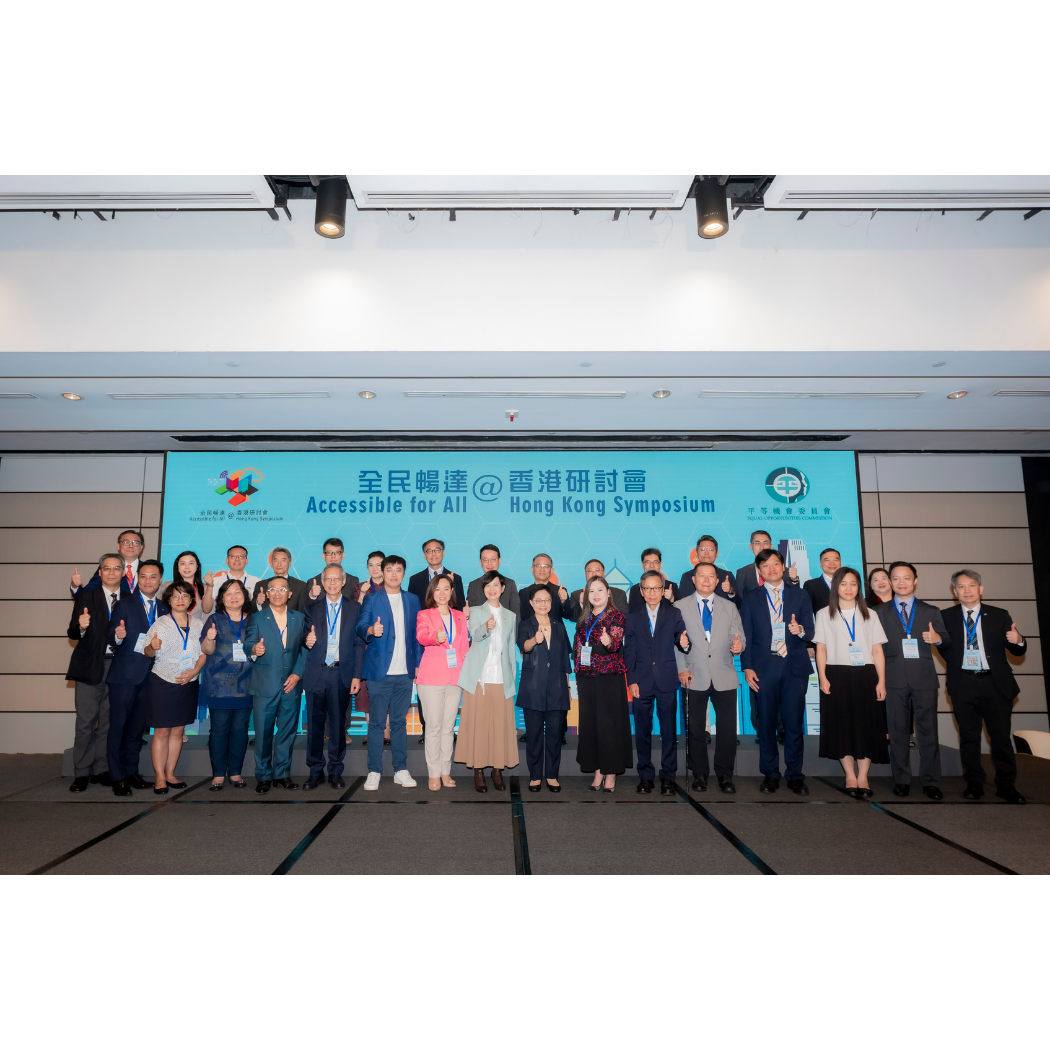
EOC organises symposium to explore ways to enhance physical and digital accessibility
Hong Kong is facing a demographic shift, with projections showing that at least one in every three persons will be 65 or above in just over two decades. Enhancing accessibility across all aspects of everyday life will be crucial to ensuring that the city remains a vibrant, inclusive, and liveable urban environment for people of all abilities and ages, and that it becomes a truly world-class smart city with a thriving economy and high quality of life.
On 15 July 2024, the EOC organised the Accessible for All@Hong Kong Symposium at Hong Kong Convention and Exhibition Centre, providing a unique platform for exchanges and discussion among close to 300 guests on ways of building a more accessible and inclusive environment. Ms Winnie HO Wing-yin, JP, Secretary for Housing of the HKSAR Government, was the event’s Guest of Honour.
Speaking at the event, EOC Chairperson Ms Linda LAM Mei-sau said, “In the face of a rapidly ageing population, the demand for barrier-free facilities in Hong Kong society is becoming increasingly urgent. Ensuring that people of different ages, abilities, and physical conditions can access premises, use transportation, enjoy various public facilities and services, and fully participate in society is a present and future challenge for Hong Kong. The EOC is hosting the Symposium to gather diverse insights, facilitate in-depth discussions, encourage experience-sharing, and explore ways to eliminate various visible and invisible barriers in society, such that we can transform Hong Kong into an inclusive, accessible, and age-friendly city.”
Bringing together policymakers, pioneering researchers, and industry thought leaders from Hong Kong and the Greater Bay Area, the three thematic panel sessions and three showcases led to fruitful discussions on practical solutions for removing physical and digital barriers, highlighted the latest innovations in universal design and accessible technology, and promoted the development of an inclusive smart city. The speakers included policymakers from the Government, Legislative Councillors, and experts and leaders from various industries, including architecture, information technology, academia, banking, and healthcare. The event also featured two experts from the mainland who presented on the development of barrier-free facilities and environments in the country and the Greater Bay Area.

